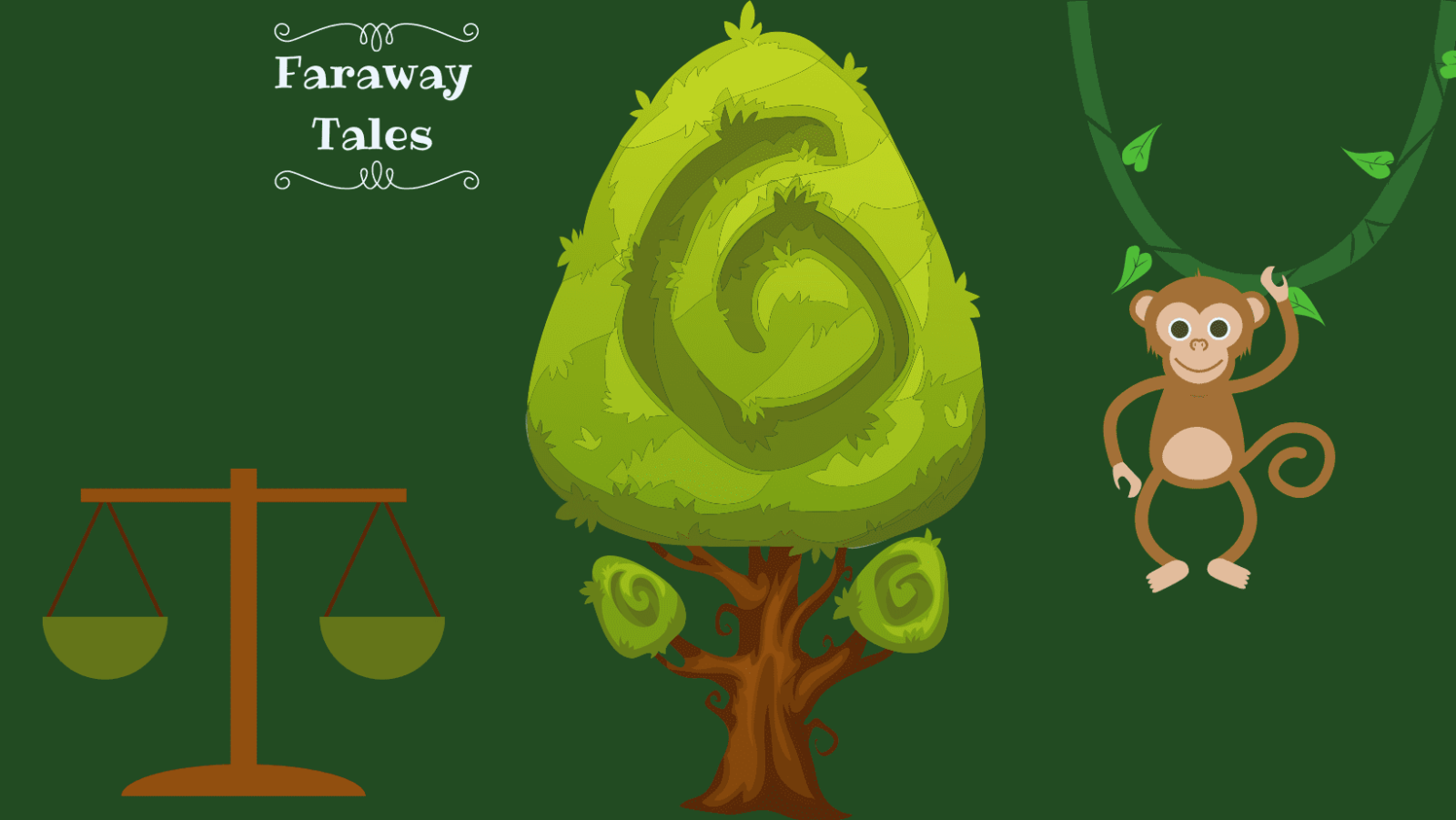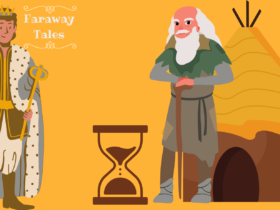|| An Indian folktale ||
Long ago in the city of Benaras, there lived two friends, Dharmabuddhi, which means “having a just heart” and Pâpabuddhi, which means “having an unjust heart.”
One day Pâpabuddhi thought to himself, “I am a simpleton, plagued with poverty. I am going to travel abroad with Dharmabuddhi, and earn money with his help. Then I will cheat him out of it and thus gain a good situation for myself.”
So he convinced Dharmabuddhi to accompany him on his travels.
Dharmabuddhi took leave from his parents with a joyful heart, and one happy day set forth for foreign lands.
Through their diligence and skill, they both acquired great wealth on their travels. Finally they turned homeward.
As they approached their city, Pâpabuddhi said to Dharmabuddhi, “Friend, it is not prudent for us to return home with our entire treasure, for our families and relatives will want part of it.”
“Therefore let us bury it somewhere here in the thick of the forest and take only a small part home with us. When the need arises, we can come back and get as much as we need from here. For they also say: Just like meat, which is eaten on land by animals, in water by fish and birds in the air, a man who owns money is everywhere at risk.”
Dharmabuddhi agreed, “Yes, my friend, that is what we will do!”
After having thus buried their treasure, they both returned home and lived happily for a while.
However, one day at midnight Pâpabuddhi went back into the forest, took the entire treasure, refilled the hole, and returned home.
Then he went to Dharmabuddhi and said to him, “Friend, each of us has a large family, and we are suffering because we have no money. Therefore, let us go to that place and get some money.”
So they went there and dug up the container, but it was empty. T
hen Pâpabuddhi struck himself on the head and cried out, “Aha! Dharmabuddhi! You and only you have taken the money, for the hole has been filled in again.
“Give me my half of what you have hidden, or I will bring action against you at the king’s court.”
Dharmabuddhi said, “Do not speak like that, you evildoer. I would not commit such an act of thievery”
Quarreling thus, they proceeded to the court where they told their stories and brought action against one another.
The judges proposed that such a situation without a witness should be difficult to conclude.
Pâpabuddhi said, “But tree is a witness. Who better to ask than the tree standing there all the time?”
The judges all agreed much to the discomfort of Dharmabuddhi. So he thought of his own plan.
In the meanwhile, Pâpabuddhi returned home and asked his father to be part of his cunning plan.
He said, “Father! I have stolen this money from Dharmabuddhi, and one word from you will secure it for us. Without your word, we shall lose it, and I shall lose my life as well.”
The father said, “Child, just tell what I have to say in order to secure it!”
Pâpabuddhi said, “There is a large mimosa tree. It has a hollow trunk. Go hide yourself in it. When I swear an oath there tomorrow morning, then you must reply that Dharmabuddhi is the thief.”
Having made these arrangements, the next morning Pâpabuddhi went to the mimosa tree with Dharmabuddhi and the judges.
Once there, he spoke with a piercing voice,
“Sun and moon,
wind and fire,
heaven and earth,
heart and mind,
day and night,
sunrise and sunset, all of these, like dharma, know a man’s deeds. Sublime goddess of the forest, reveal which of us is the thief!”
Then Pâpabuddhi’s father, who was standing in the hollow trunk of the mimosa tree, said, “Listen! Listen! The money was taken away by Dharmabuddhi!”
Having heard this, the judges, the king’s servants, and everyone’s eyes opened wide with amazement.
They started searching in their law books for an appropriate punishment for Dharmabuddhi’s theft of the money.
While they were thus engaged, Dharmabuddhi put some dried grass inside the hollow and set it on fire.
When it was well ablaze, Pâpabuddhi’s father emerged from the hollow tree.
His eyes streaming, coughing, he cried out bitterly.
He confessed everything.
The king’s servants praised Dharmabuddhi for his presence of mind and sent Papabuddhi to be imprisoned in the dungeons.
Like (0)







Leave a Reply